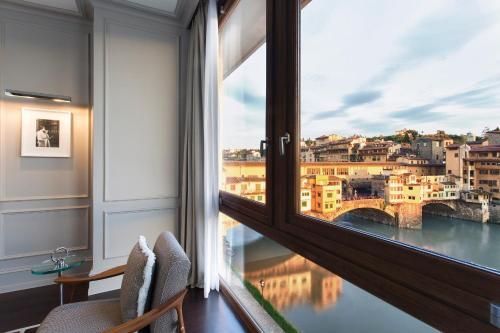Hitler and the Ponte Vecchio
Historical rumours are fast becoming one of my new favourite things.
They are unlike the everyday rumours that gossipmongers whisper to each other with satisfyingly cheeky smirks on their faces.
Oh no – those rumours can be stopped when the tales have been circulated so far they’ve done a full rotation and ended up being shared with the subject of the gossip.
Historical rumours are the complete opposite because the more they are spread, the longer the passage of time, and less the likelihood anyone will actually know the truth.
You hear them all the time as a tourist.
There’s always a historical figure or a landmark event, no matter how obtuse, that somehow relates to the place you’re visiting. Perpetuated by guidebooks, tour operators, and even blogs, a tall tale becomes a fable and then morphs into truth.
The latest one I’ve been told concerns the Ponte Vecchio in Florence.
It’s probably one of the most famous historical bridges in Europe, mainly for its history than its aesthetics, I imagine. Built with shops and enclosed passageways, it looks slightly like a mobile home was washed away in a flood and got stuck between two banks of the river.
One important person took a liking to it, apparently. And that brings me to the rumour.
While all the other bridges of Florence were being bombed during the Second World War, one remained standing. The Ponte Vecchio never came under attack and the legend the tour guides spread is that the only reason it was spared was because Hitler liked it.
Shopping on the Ponte Vecchio
We’ll probably never know if that’s actually true. Regardless, the bridge clearly has value – if only for the dozens of jewellery stores it is now home to. Since the late 16th century, the shops on the bridge have sold gold, silver and jewels.
Before then, it was the butchers who took residence on the Ponte Vecchio but the Medici family, who used the corridor on the second level as a pathway across the river, decided the odour of the raw meat was too ghastly a smell for them as they passed by.
These days it’s one of the top tourist attractions in Florence. Some come for the architecture and some come for the shopping (mainly window shopping it seemed, when I visited). But with centuries of history – and a rumour or two from more recent times – many also come for the history.
THE BEST ACCOMMODATION IN FLORENCE
There’s lots of accommodation in the historic centre so I would recommend finding somewhere there so you’re amongst all the sights.
BACKPACKER
For a cool hostel, I would recommend the modern Plus Florence, which even has a pool.
BUDGET
With comfortable and affordable rooms, Hotel Lorena also has a fantastic location.
BOUTIQUE
For a bit of style, I love the vintage design of the Residenza La Musa Amarcord.
LUXURY

And it’s not cheap, but Portrait Firenze is my recommendation for the best luxury hotel in the city.
Interesting legend! I wouldn’t actually be surprised if it were true. Outside of the obvious, Hitler seemed like quite a character.
I suppose in those kind of situations, when one man has so much power, they are able to make decisions like that. But to save a bridge because you like it, to the detriment of military objectives, seems a bit strange.
I am writing my husbands biography from anecdotes he and my sister in law share with me. They were born and lived in Firenze during the war years. Their father was a fireman so also had insights from his awareness of the war situation. According to them this rumour is nonsense.
When the Germans retreated back through Firenze they blew up houses and bridges on the sides of the Arno to prevent the Allies from following them. The construction of the Ponte Vecchio didn’t allow for the weight of tanks and trucks to traverse it so there was no need to bomb it. Moreover the buildings on either side of the Ponte Vecchio had already been bombed so there would not have been access to the bridge in any case.
I’m not sure about the origins of the rumour… Probably Hitler did like the bridge, like millions of other people, but I doubt it was the reason why neither the Nazis nor their counterpart bombed it during WWII 🙂
Exactly. It seems a strange reason to base a decision on when you’re fighting such a huge war.
I agree with you that the bridge has much more historical than esthetic value. When I saw the bridge I crossed it off my mental checklist and headed right back towards the Galileo museum near the Uffizi!
It’s a bit strange because everyone talks it up but when you actually see it there’s an element of “eh?”. I guess some places are famous for the sake of being famous more than because of any undeniable beauty.
How neat! I’d never heard that historical rumor before, but it definitely is interesting!
There seem to be a lot of these rumours. But this one was particularly interesting.
Huh, I’d never heard this rumor before, but it’s an interesting one.
I also like the point you made about how historical rumors get to the point that they can never fully be verified… I think it’s kind of cool actually, because it adds the the mystery and aura of a place that we’re visiting – they’re not just buildings or bridges, they’re buildings and bridges with a *story*.
Such a good point about how it gives buildings a ‘story’. Part of me gets angry if that story isn’t true but I suppose the other part of me likes that they have a sense of mystery.
I believe the jewelers melted the stolen property of the Jew’s, maybe to save themselves